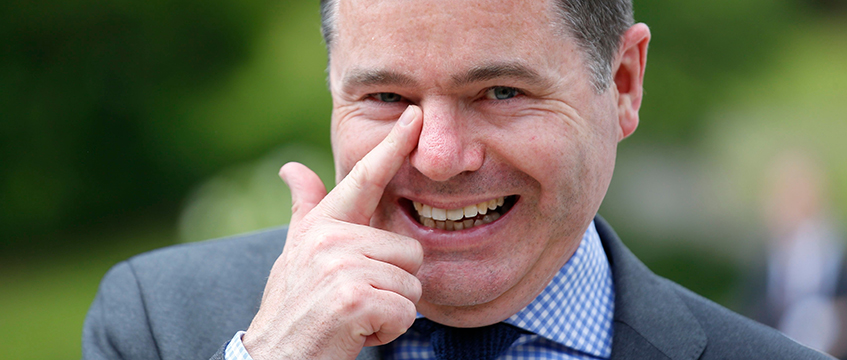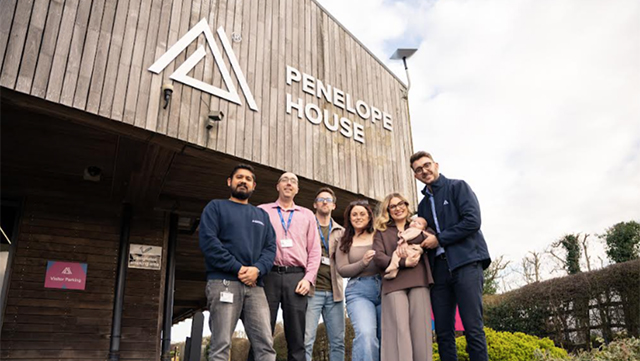As the Irish government prepares to unveil its 2019 Budget next week (October 9), real estate investors are bracing themselves for tax hikes. After an unexpected stamp duty tax increase on commercial real estate last year, affecting offices, retail and logistics, the government is now considering higher taxes for the private rented sector and hotels.
Finance minister Paschal Donohoe (pictured) has a modest €800m (£709m) in the coffers left to work with, having already allocated more than €2bn to various expenditure programmes. However, Ireland remains behind its tax revenue target for 2018, meaning that he has limited wriggle room for a more generous budget and is expected to raise money elsewhere.
Stamp duty hikes on PRS
Based on current forecasts, the government could extend last year’s stamp duty hikes on the commercial real estate sector to the PRS sector. Despite a persistent lack of residential space in the market, the government is likely to dip into investment profits from this space.
Last year, the government increased the rate of stamp duty for its 2018 Budget on commercial property, including office developments, retail and logistics parks, from 2% to 6%. The move was unexpected at the time, so PRS investors – which currently pay a 2% stamp duty tax – are now gearing up for an increase to up to 6%.
Unsurprisingly, this has already led to consternation among most agents and real estate tax experts, who say that this is a challenge to the residential sector at a time when it needs more support.
Jim Clery, head of real estate at KPMG in Ireland, says: “In our view, introducing a measure that would increase the cost of supplying much-needed accommodation is not sensible and in total contradiction of government policy to facilitate the increase in housing supply.”
Marie Hunt, executive director at CBRE Ireland, agrees that the government should be wary of alienating PRS investors. She says: “Build to rent is clearly not the panacea for the Irish housing shortage but it is part of the solution. It can deliver scale quickly and supply hundreds of units at a time when the market is essentially starved of product.
“We should be encouraging this as opposed to penalising investors.”
She adds, though, that ultimately such a tax hike is unlikely to discourage investors from moving into PRS. “I don’t think this change would put investors off getting into PRS but it wouldn’t be popular as it would be seen as further government interference in the sector.
“Ultimately the change would impact on value in the same way as last year’s increase did to commercial property values.”
Others suggest that PRS is an obvious target and one that makes sense. Killian O’Higgins, managing director at WK Nowlan Real Estate Advisors, says: “The volume of investment into PRS makes it a sensible area to go to.
“The government is looking to give some advantage to individual home buyers over institutional investors. Given the growth in their PRS portfolios, the mooted tax increase to [up to 6%] is not a lot.”
Hotel tax increases
It is also widely expected that the government will boost the rate of tax on hotels. Since the recession, the hospitality sector saw its VAT rate cut from 13.5% to 9% to help it recover. With the Irish tourism industry back on its feet, the expectation is that hotels across the board will pay a higher tax rate.
While hotels are unlikely to pay the same amount they were paying before the recession, it is likely the tax rate will rise to at least 11%.
This has been anticipated for some time given the concession was brought in when hotels were struggling and the opposite is the case now. O’Higgins says: “There is pressure on hotels. The state gave them tax breaks a few years ago to help them recover and now they are very profitable and the government wants to take a slice of these profits.”
Longer lease terms
As well as future homeowners, the government may try to curry favour with renters – and their landlords. Some agents and tax partners have heard that Donohoe may provide the means to lengthen traditional lease terms and so provide more security for tenants.
One way the government could do this is to work with the private sector and offer landlords incentives. Although some landlords may favour lease breaks or securing new tenants as a means of hiking rent, others could look favourably on maintaining a more secure and reliable pot of income.
But the question is, how will the government convince them of this? O’Higgins suggests the government could incentivise landlords to grant longer leases by offering them tax credits.
Deloitte Ireland tax partner Padraic Whelan adds: “I have heard talk about the introduction of longer-term leases, perhaps with local authorities, where the private sector works with the local authority to deliver housing. If we had longer leases, there may be many other benefits, such as more secure lines of credit.”
The details are due to be revealed next week, but the message is clear: the government is looking to capitalise on the recent fortunes of Ireland’s property industry, having assisted it out of the depths of the economic crisis. But any moves to reduce the profits of the PRS sector are likely to be unpopular in a market already starved of housing supply.
To send feedback, e-mail anna.ward@egi.co.uk or tweet @annaroxelana or @estatesgazette











